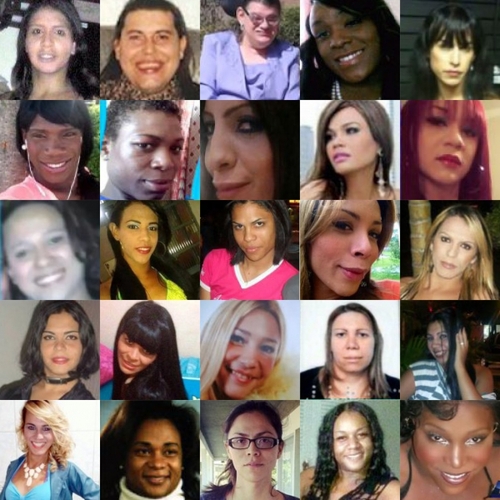BRATTLEBORO — In 2011, the National Gay and Lesbian Task Force partnered with the National Center for Transgender Equality to put together one of the largest surveys of United States transgender people in history.
The document they produced from this survey, “Injustice at Every Turn,” reflects a number of bleak realities.
The organizations found that “transgender and gender non-conforming people face injustice at every turn: in childhood homes, in school systems that promise to shelter and educate, in harsh and exclusionary workplaces, at the grocery store, the hotel front desk, in doctors' offices and emergency rooms, before judges and at the hands of landlords, police officers, health-care workers and other service providers.”
Respondents, they found, lived “in extreme poverty” and were “nearly four times more likely to have a household income of less than $10,000 a year compared to the general population.”
About a fifth of trans people surveyed had experienced violence at the hands of a family member, and more than half had experienced sexual violence. And like other types of violence, violence against trans people is underreported. These are conservative statistics.
Furthermore, because we live in a patriarchal culture that privileges maleness and masculinity, it is not surprising that trans women statistically earn about a third less after coming out than they did before, and that conversely, trans men make slightly more money than they did previously. (For more on this phenomenon, look up the unfortunately titled New York Times article “Before That Sex Change, Think About Your Next Paycheck.”)
And even this piece misses two important things.
First, race affects earning potential: most of us have seen the statistic that white women earn, on average, 77 cents for every dollar that a white man earns. But statistically, black women earn 64 cents for every white man's dollar, and Latina women earn only 53 cents.
Trans people experience double the rate of unemployment in comparison to other groups, and among those trans people who do have jobs, 90 percent reported experiencing harassment, mistreatment, or discrimination at work.
So it's not hard to imagine how trans status intersects with racial oppression when it comes to earning power - and, on top of that, we know that these statistics are relevant only to trans people who are employed.
* * *
Every year since 1998, Nov. 20 has been set aside as the Transgender Day of Remembrance.
Every year, trans activists work hard to come up with the best statistics they can about trans people who have been murdered within the previous 365 days. And every year, we see that the trans people who are murdered are overwhelmingly trans women - and, specifically, trans women of color.
Most of these murders go unprosecuted and underreported in the media. It's important also to point out that, like all types of violence, violence against trans people is overwhelmingly perpetrated by men. So basically, what we see in violence against trans people are the predictable and harsh intersections of sexism, racism, transphobia, and other forms of oppression.
Trans people are a part of our community, and several local organizations are working to provide support, like Homo Promo, which hosts trans potlucks, and Outright Vermont, which serves trans youth in our area.
This year, we at the Women's Freedom Center will partner with Green Mountain Crossroads and the AIDS Project to hold a Transgender Day of Remembrance gathering at The Root Social Justice Center on Friday, Nov. 21 from 7:30 to 9 p.m.
We will show short films by and about trans people, prioritizing work by trans women, trans people of color, trans youth, and especially people from more than one of those groups.
Because incarceration disproportionately affects trans people of color, we'll also be working with Black and Pink, an organization working toward prison abolition with a focus on supporting incarcerated LGBTQ people, to create an opportunity to write to incarcerated trans people and start pen-pal relationships.
We will also have food, short speeches, music by Bella, community, and more.
At the Women's Freedom Center, we're working to end men's violence against all women, including trans women. We work to fill the gaps in support around violence experienced by the trans women in our community.
And while we know that there's much more to the lives of trans people than violence and oppression - and while we would like to frame the Transgender Day of Remembrance also as a Transgender Day of Resistance - we hope you'll join us not only to remember and mourn our dead but also to show love and support to trans people in our community.
Please join us in recognizing the ways that oppressions intersect and complicate each other as we work together to end violence against all women.
